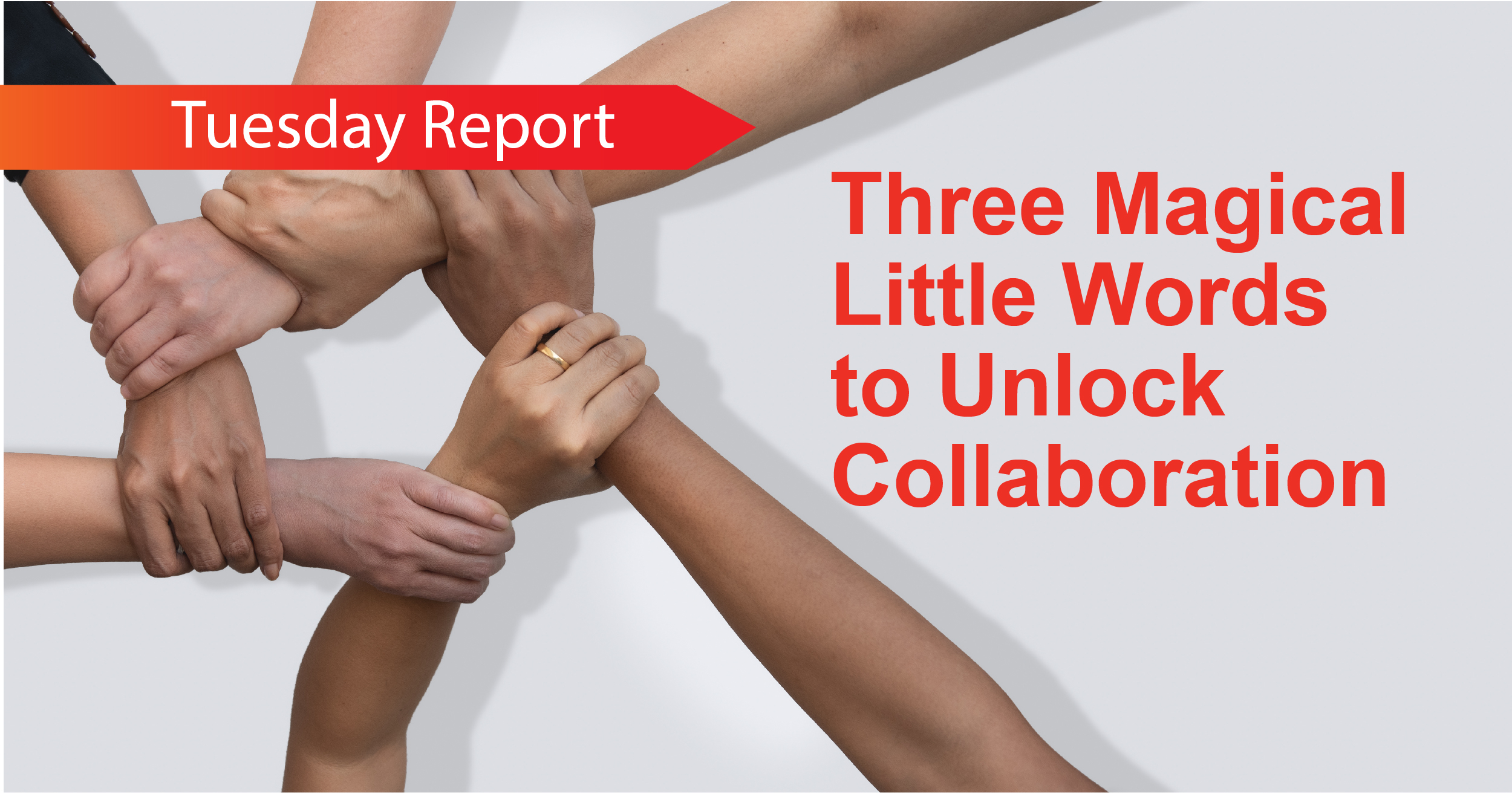What can you do when you have to get people or groups to collaborate, when neither bullets, bombs or bluster can get them to move a nano-step?
In my work with leaders of organizations—where millions of dollars are on the line—I’ve found three simple magic words that may be a breakthrough for you.
How? . . .
Might? . .
We? . . .
Let me take you through this word miracle that could bring you breakthroughs beginning tomorrow.
Whatever you might think causes it—fractured demographics, social media, tribalism, the media, exploitative politicians or just unwillingness to listen—it seems the only thing everyone agrees on today is that we don’t agree on much of anything. Period. End of discussion.
So what can you do when your work or your personal life require that you find some way to keep minds from snapping shut in order to have a collaborative, problem-solving discussion? You know how it goes: You tee up a challenging topic, and you see the eyes fire up, the body language stiffen and people instantly begin to formulate rebuttals before you get a word out. How can anyone start to rebut you before you even speak, anyway?
Here is a very simple technique that opens up conversations that otherwise would have locked down into warring camps or been stillborn. It takes just three words: How….Might….We. We have global design and innovation company IDEO to thank for this simple framework. Thank you, IDEO!
Here’s how it works.
When you open up the exploration of a problem, challenge or opportunity with these three words…always framing it as a question….three magical things happen:
- “How” suggests that the problem has a solution, that an answer or multiple answers can be found. In other words, “how” invites a conversation that is worth having, because it will lead somewhere fruitful.
- “Might” suggests that there could be more than one answer…maybe even many answers. “Might” suggests that I don’t have my mind already made up, that I’m open to your ideas and anyone else’s. “Might” therefore suggests it’s worth it for YOU to engage in this conversation.
- “We” suggests it’s a team effort. “We” means I’m not imposing my will, my position, or my ideology on you. “We” means we are “all in it together” and it will take all of us to find that best answer. “We” suggests there’s room for you and you and you and you at the table for this conversation.
“How might we.” Three simple words that actually change the chemicals of the brain to facilitate expansive behaviors like creativity, exploration and idea generation—rather than the behaviors of limitation like negativity, dismissiveness, and closed-mindedness.
Next time you’re facing a discussion you expect will be negative, challenging and unproductive, try beginning with these three little words and see if it doesn’t get a better outcome.






